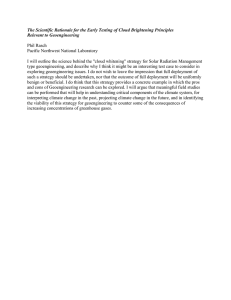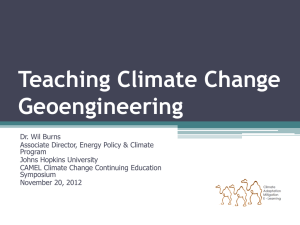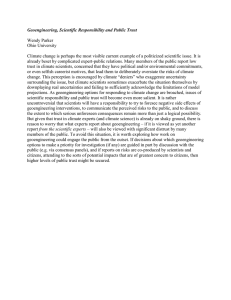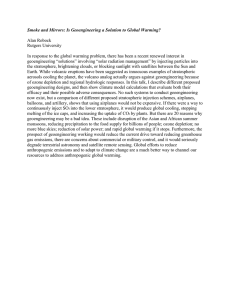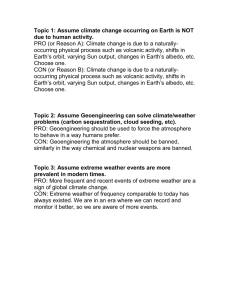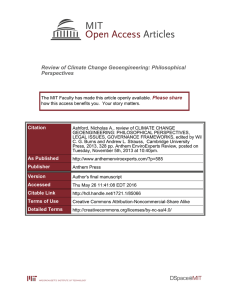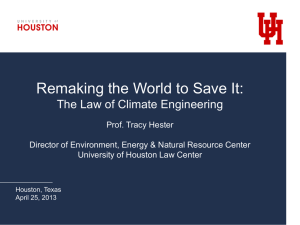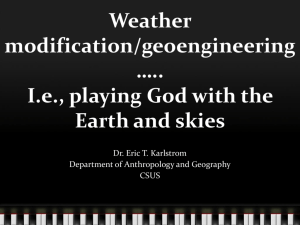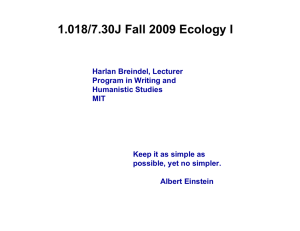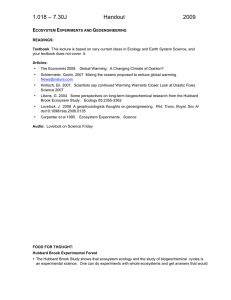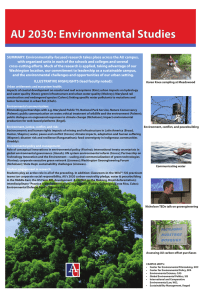Environmental Ethics and the Presumptive Argument against Geoengineering Christopher Preston
advertisement
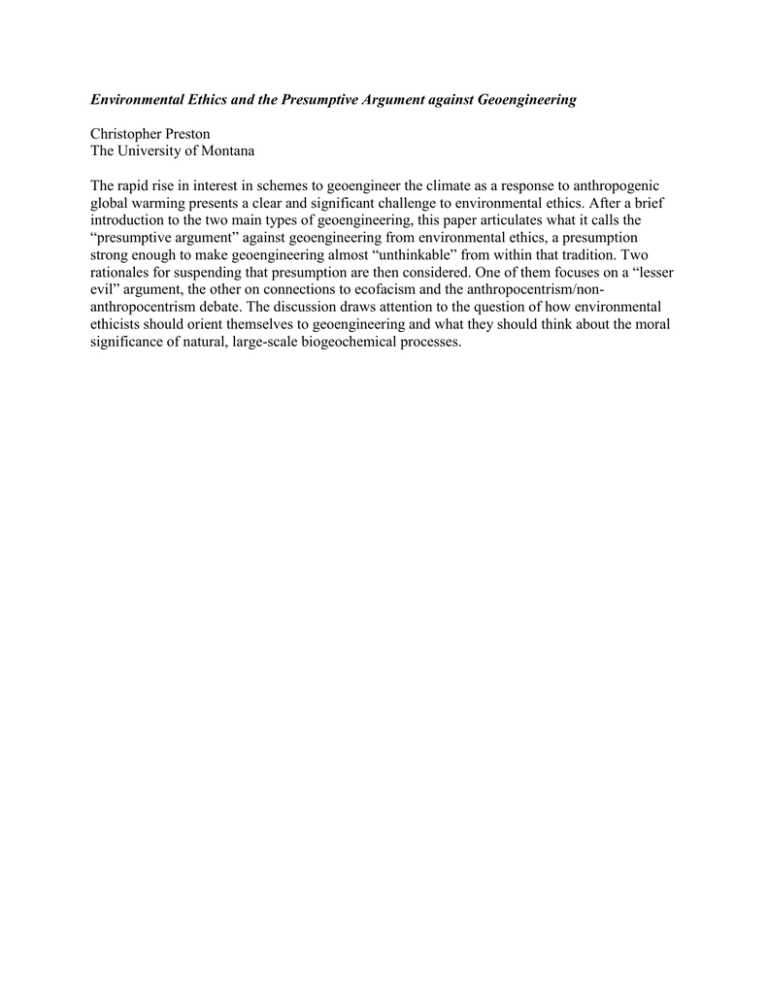
Environmental Ethics and the Presumptive Argument against Geoengineering Christopher Preston The University of Montana The rapid rise in interest in schemes to geoengineer the climate as a response to anthropogenic global warming presents a clear and significant challenge to environmental ethics. After a brief introduction to the two main types of geoengineering, this paper articulates what it calls the “presumptive argument” against geoengineering from environmental ethics, a presumption strong enough to make geoengineering almost “unthinkable” from within that tradition. Two rationales for suspending that presumption are then considered. One of them focuses on a “lesser evil” argument, the other on connections to ecofacism and the anthropocentrism/nonanthropocentrism debate. The discussion draws attention to the question of how environmental ethicists should orient themselves to geoengineering and what they should think about the moral significance of natural, large-scale biogeochemical processes.
